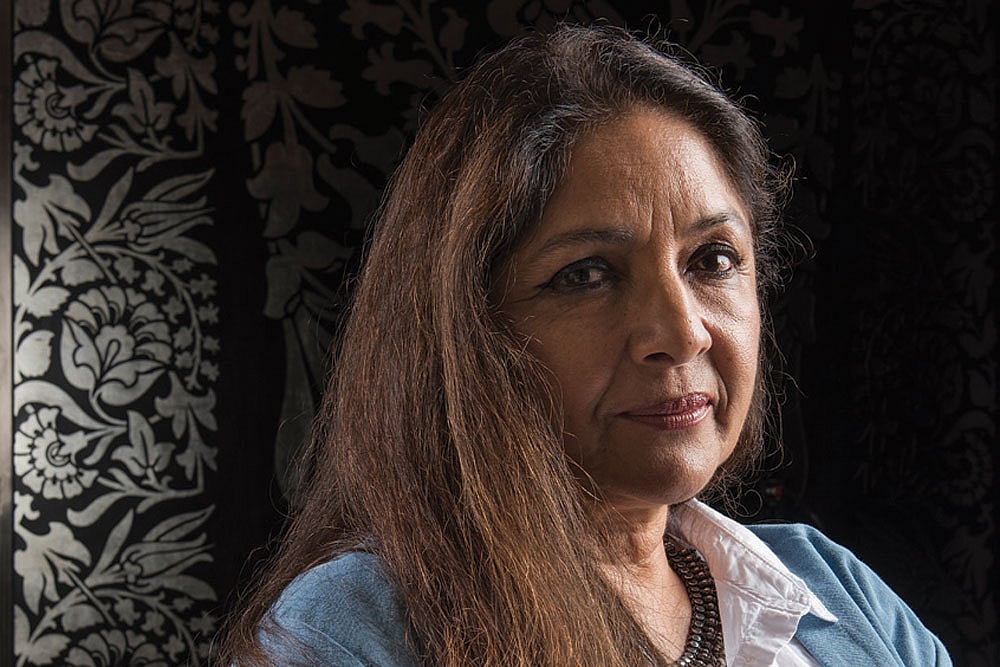Hard Truths

SPAGHETTI STRAPS AND Sanskrit poetry. Karol Bagh conservatism and Mumbai bohemia. Neena Gupta has always been seen as a paradox. She was the sheltered Delhi girl who took Mumbai by storm and became a much-publicised single mother in the age of stealthy sex. Destined for big-screen stardom after a stellar three years at the National School of Drama, Delhi, she got typecast as the lallu ladki, as Girish Karnad described her. Television’s biggest star at one point, she was suddenly ousted from her position as Star TV’s sultana, by the younger Ekta Kapoor with an army of soap operas.
And when she finally became a popular leading lady, she was almost 60, with a movie that would transform her from the status of eternal scene-stealer to the stage-setter. Gupta’s story is a fascinating one that tells you about persistence, patience, and the ability to pick up the pieces. In her memoir, Sach Kahun Toh: An Autobiography, Gupta writes about self-doubt, and the struggle to tell herself she was good enough, even if she was flawed, chipped and broken. Towards the end of the book, Gupta says she has very little to complain about. “Life is good, but...Sometimes, there is still a keeda (a worm) niggling at my mind, reminding me of all the slights I had to face, the brush-offs, the backbiting, the outright rejections.” On good days, she says, she politely asks this keeda to let her be. On bad days, when her emotions are running high, she tells this keeda: “Go to sleep, you fucker.”
Imran Khan: Pakistan’s Prisoner
27 Feb 2026 - Vol 04 | Issue 60
The descent and despair of Imran Khan
That, in fact, was going to be the title of her autobiography before her publishers settled for ‘Sach Kahun Toh’. And rightly so. There are a lot of truths in the book. Gupta talks about her first marriage when she was very young: about being jilted by the son of a famous musician whose family she became close to; about being repeatedly denied a lead role in a Shyam Benegal movie despite putting in the years and the smaller parts; about being let down by Doordarshan; about being told by Subhash Ghai to pad up her bust for the Choli ke peeche song in Khal Nayak; about being let down by lovers, by those she considered surrogate parents.
But she has not let it make her bitter. After every setback, she has armed herself anew with courage and clarity and sallied forth again. Much of it is because of the greatest love of her life, Masaba. As a single mother, she knew she had to take care of her baby—now one of the country’s leading designers—no matter what the odds. Gupta writes that her only abiding support has been her parents. There is a moving tribute to her younger brother, where she writes of her guilt at not trying harder to save him from his addiction and eventual death from cancer.
It isn’t easy baring one’s scars in public, not even for someone whose privacy has been repeatedly encroached. But Gupta has done it with grace and gravitas. She spends time over her mistakes, acknow-ledging the lessons she’s learnt, whether these are professional (always be besharam [shameless] when it comes to asking for work) or personal (especially when she allows herself to be humiliated by a lover who is clearly two-timing her).
In the end though it’s life’s little things, which she has observed and which make her a great actress; her father’s habit of peeling two oranges, tasting them both, and giving his daughter the sweeter one; her mother’s foraging at American embassy auctions for trendy clothes for her daughter to wear to college; former students at her brother’s funeral; and the eventual deaths of all three. “When I think about this, a sense of loneliness envelops me because it feels like there is no one who has known me my entire life; who knows my entire history.”
We’re fortunate that she has let us have a glimpse of it in her memoir. It may not have been an easy life, but it has been one with a lot of joy.

